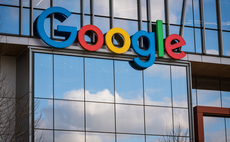Eric Schmidt looks to reassure Asian manufacturers during South Korea visit
Google executive chairman Eric Schmidt has revealed that the company will run Motorola as an independent business unit to reassure Android partners such as Samsung and HTC that the $12.5bn deal wil...
To continue reading this article...
Join Computing
- Unlimited access to real-time news, analysis and opinion from the technology industry
- Receive important and breaking news in our daily newsletter
- Be the first to hear about our events and awards programmes
- Join live member only interviews with IT leaders at the ‘IT Lounge’; your chance to ask your burning tech questions and have them answered
- Access to the Computing Delta hub providing market intelligence and research
- Receive our members-only newsletter with exclusive opinion pieces from senior IT Leaders























